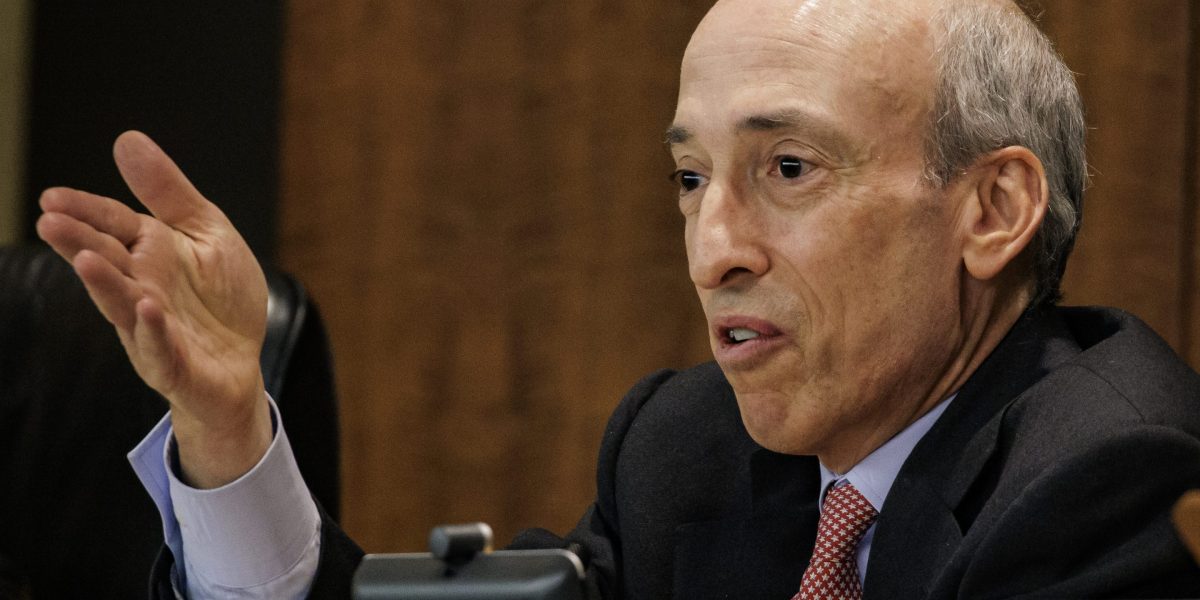As the crypto industry continues its calls for regulatory clarity, a glaring question has been whether stablecoins, typically digital assets pegged to and backed by the U.S. dollar, should be treated as securities. Now, a decision by the Securities and Exchange Commission to quietly end a probe into the New York stablecoin issuer Paxos suggests that, in most cases at least, the answer is no.
On July 9, Jorge Tenreiro, the acting chief of the crypto assets and cyber unit, informed Paxos that he did not intend to recommend an enforcement action, according to a letter shared with Fortune. The notice came more than a year after the SEC sent Paxos a Wells notice, or a letter signaling an impending enforcement action, over the dollar-backed BUSD stablecoin that Paxos issued in partnership with Binance.
This retreat by the SEC comes days after the agency suffered a partial defeat in a lawsuit against the top crypto exchange Binance. While Congress continues to stall on legislation to regulate the growing asset class, the SEC’s decision offers an unexpected win to the stablecoin sector, which now includes companies such as PayPal and VanEck.
“The termination of this investigation formally is an enormous relief for us,” said Walter Hessert, the head of strategy at Paxos, in an interview with Fortune. “It’s what we expected all along, and it really should create, hopefully, more certainty in the market among what we see as a growing number of large enterprises.”
In response to a request for comment from Fortune, an SEC spokesperson said that “the SEC does not comment on the existence or nonexistence of a possible investigation.”
The search for stability
The New York-based Paxos first launched BUSD in partnership with Binance in September 2019. Though the dollar-backed stablecoin never overtook its competitors Tether and USDC, it soon became one of the leaders in the budding sector thanks to its role in the Binance ecosystem.
While BUSD was pegged to the U.S. dollar, the SEC would later argue in a lawsuit against Binance that the stablecoin was an investment contract, and therefore a security, because it earned profits through its reserves for both Binance and Paxos, which were partially passed on to Binance users in the form of yields. While the lawsuit did not come until June 2023, the SEC informed Paxos of its view in the February 2023 Wells notice. In a statement at the time, Paxos disagreed with the SEC’s stance, arguing that BUSD was backed 1:1 with dollar-denominated reserves, though it didn’t later elaborate on the agency’s arguments about profits generated by the reserves.
The SEC’s move against Paxos sent shockwaves through the crypto industry. Stablecoins still fall in a regulatory gray zone barring new legislation, but many argue that the absence of an expectation of profit —a key prong in the test to determine securities—separates them from many other crypto assets.
The investigation continued for over a year, with the agency responding to a Fortune freedom-of-information request by confirming that it remained “active and ongoing” as of July 3. The agency appears to have shifted its stance, however, after a federal judge sided with Binance in a June 28 decision that held that the sales of BUSD did not constitute a securities offering and ordered the charge to be dropped.
Speaking with Fortune, Hessert said that Paxos has had to operate under the “cloud” of a Wells notice for over a year, which has impacted its ability to partner with new companies, including PayPal. “It definitely will accelerate some really exciting enterprise conversations,” he said.
The decision may also bolster the stablecoin sector in the U.S. as firms have looked abroad to launch new offerings amid the regulatory uncertainty.
This article was originally published by a fortune.com . Read the Original article here. .

